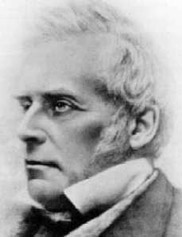A Quote by Ayelet Shaked
Anyone who has followed my work knows that I'm an advocate of reducing the power of the High Court of Justice, according to the principle of separation of powers.
Related Quotes
Power has to be protected from scrutiny. That's the principle of every dictatorship, of every autocracy. You hear it from high priests at Harvard and every government department, that power has to be kept secret otherwise it will fade and it won't work. But Bradley Manning is violating that principle.
The State which we have founded must possess the four cardinal virtues of wisdom, courage, discipline and justice ... Justice is the principle which has in fact been followed throughout, the principle of one man one job, of minding one s own business , in the sense of doing the job for which one is naturally fitted and not interfering with other people.
I believe that the power to declare war is most important in limiting the powers of the national government in regard to the rights of its citizens, but that it does not require Congress to give its approval before the president uses force abroad. I do not believe that the framers of the Constitution understood the power to declare to mean "authorize" or "commence" war. That does not mean that the separation of powers or checks and balances will not work.
Ajamu Baraka is a human rights advocate and an international human rights advocate, who's been defending racial justice, economic justice, worker justice, indigenous justice, and justice for black and brown people all over the world, and in the United States has been helping to lead the charge against the death penalty here, and is an extremely eloquent and empowering person. And one of the great things about running with him is that we speak to all of America.
Americans revere both the Constitution and an independent Court that applies the document's provisions. The Court has done many excellent things in our history, and few people are willing to see its power broken. The difficulty with all proposals to respond to the Court when it behaves unconstitutionally is that they would create a power to destroy the Court's essential work as well.
If the federal government has the exclusive right to judge the extent of its own powers, warned the Kentucky and Virginia resolutions' authors (James Madison and Thomas Jefferson, respectively), it will continue to grow - regardless of elections, the separation of powers, and other much-touted limits on government power.
A chief justice's authority is really quite limited, and the dynamic among all the justices is going to affect whether he can accomplish much or not. There is this convention of referring to the Taney Court, the Marshall Court, the Fuller Court, but a chief justice has the same vote that everyone else has.

































